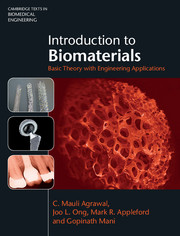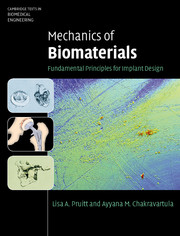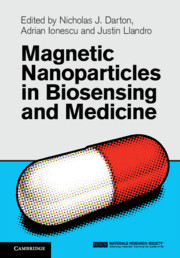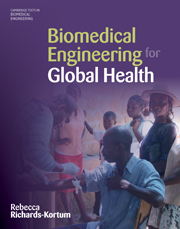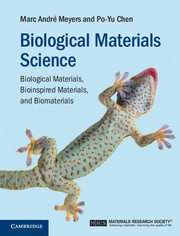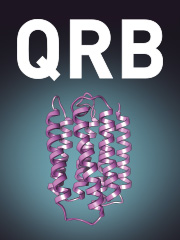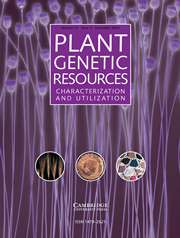Introduction to Biomaterials
This succinct textbook gives students the perfect introduction to the world of biomaterials, linking the fundamental properties of metals, polymers, ceramics and natural biomaterials to the unique advantages and limitations surrounding their biomedical applications. Clinical concerns such as sterilization, surface modification, cell-biomaterial interactions, drug delivery systems and tissue engineering are discussed in detail, giving students practical insight into the real-world challenges associated with biomaterials engineering; key definitions, equations and concepts are concisely summarised alongside the text, allowing students to quickly and easily identify the most important information; and bringing together elements from across the book, the final chapter discusses modern commercial implants, challenging students to consider future industrial possibilities. Concise enough to be taught in a single semester, and requiring only a basic understanding of biology, this balanced and accessible textbook is the ideal introduction to biomaterials for students of engineering and materials science.
- Scientific fundamentals are directly related to their practical applications in biomaterials engineering, equipping students with a balanced, broadly relevant understanding of the field
- Boxed historical asides and anecdotes add color to the text, providing insight without detracting from the key messages
- Packed with pedagogical features such as learning goals, clear and concise chapter summaries, practical examples, suggested further reading, and problems for solution
Reviews & endorsements
'This is a book that is destined to be a classic in biomaterials education. Written by leading bioengineers and scientists, it can serve not only as a textbook to support a semester-long undergraduate course, but also as an introduction to graduate-level classes. It is a well-written, comprehensive compendium of traditional and also modern knowledge on all aspects of biomaterials, and I am sure that both students and instructors will embrace it and use it widely.' Kyriacos A. Athanasiou, University of California, Davis
'This well compiled book is readily accessible to a wide readership, as the authors do not assume background knowledge of any particular field of study. Moreover, Introduction to Biomaterials strikes a pleasing balance between life science and engineering, so that both scientific principles and engineering applications are presented with a view to blending theory and practice.' Andrew Taylor-Robinson, The Biologist
Product details
November 2013Hardback
9780521116909
419 pages
249 × 196 × 23 mm
1.06kg
238 b/w illus. 150 exercises
Available
Table of Contents
- 1. Introduction
- 2. Basic properties of materials
- 3. Biological systems
- 4. Characterization of biomaterials
- 5. Metals: structure and properties
- 6. Polymers
- 7. Ceramics
- 8. Natural biomaterials
- 9. Surface modification
- 10. Sterilization of biomedical implants
- 11. Cell-biomaterial interactions
- 12. Drug delivery systems
- 13. Tissue engineering
- 14. Clinical applications.

